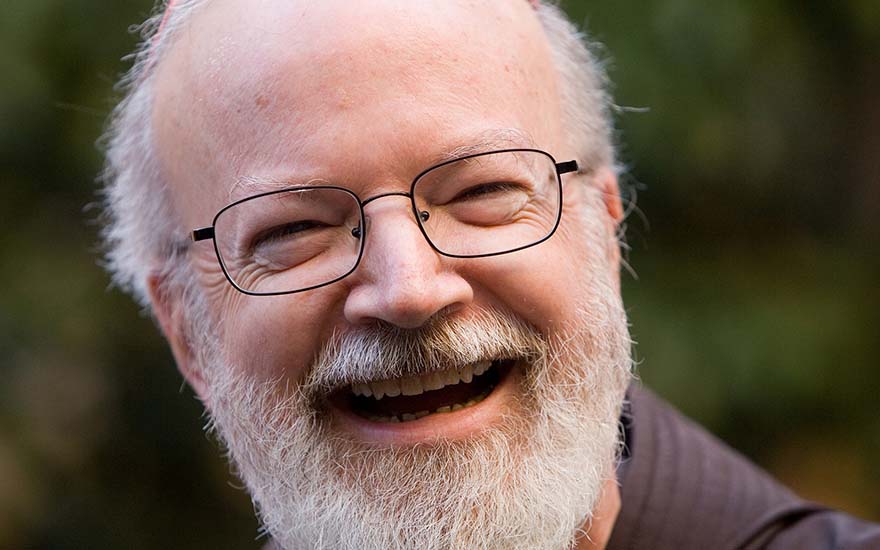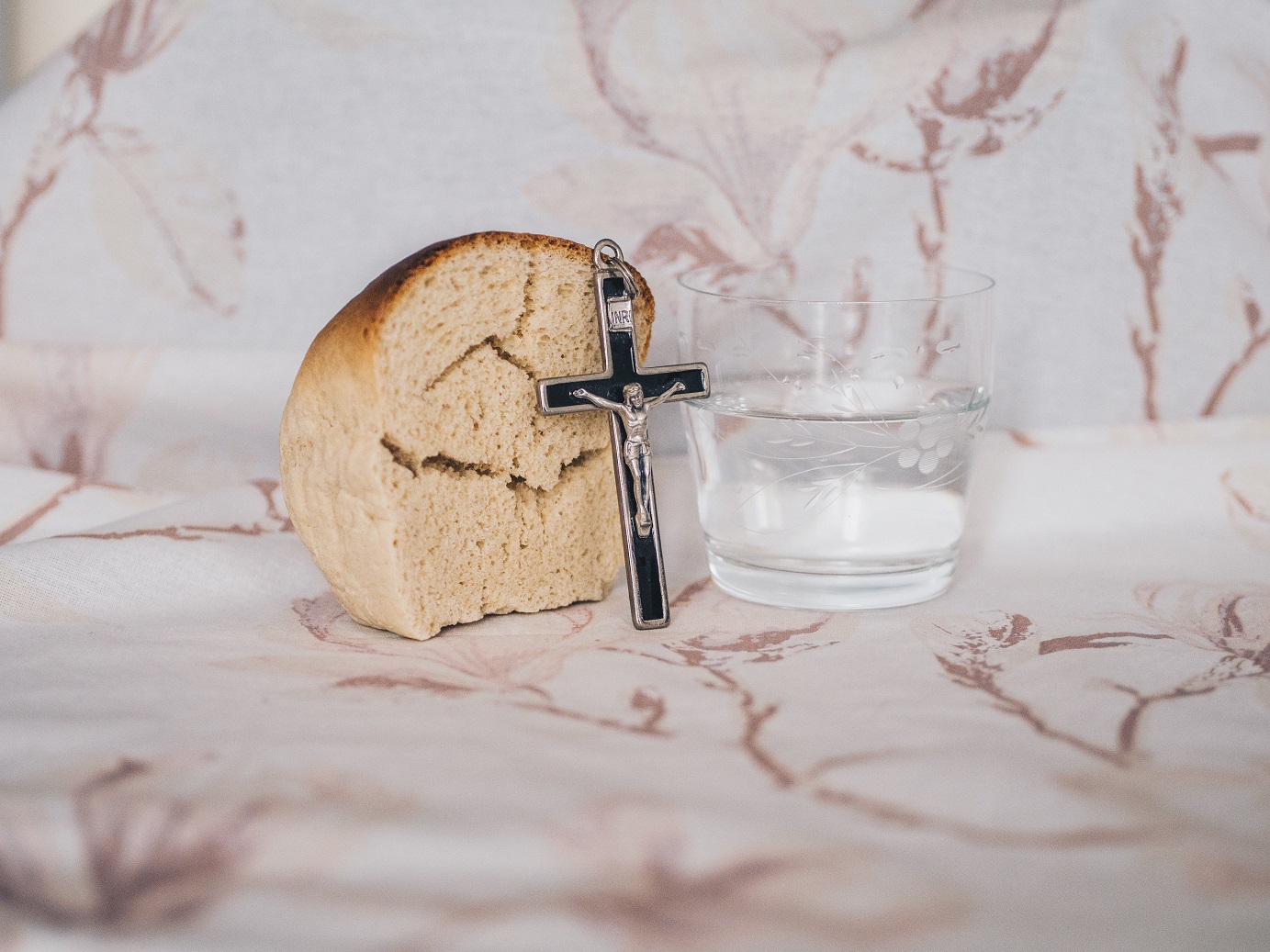How is it possible that a young man decides to leave everything behind to enter the seminary? Why would this young woman decided to leave her old life to shut herself in a convent? How did this man leave his career and prestigious job to follow God? All these are questions people ask us on the street. Thousands and thousands of words would not be enough to explain that personal Encounter with Jesus that marked our lives and encourages us to leave everything to follow Him: Jesus in his Church. Despite being a rocky path with many difficulties, this form of life fulfills us. Who can be unhappy being with God? No one! And when God calls, besides our vocation, he gives us many other things. Now, I will share with you 7 gifts that God gives to those He calls to priesthood, consecrated and religious life:
1. Grace
 ©photos.ecatholic.com
©photos.ecatholic.com
We know there’s nothing we can do without God, especially those of us who have been called to priesthood and consecrated life. Our path is neither better nor worse than any other, it’s different, it’s what God has wanted for us, but it’s not exempt from sacrifice and difficulties. We need God’s grace to constantly say “yes.” But, what is grace? The Catechism of the Catholic Church teaches us that “Grace is favor, the free and undeserved help that God gives us to respond to his call to become children of God… It is a participation in the life of God” (CCC 1996-1997). We participate in the life of God! Yes, every time we receive the Sacraments, the grace of God grows in our hearts, our union with God grows deeper. “Being in grace” means to be reconciled with God, to be at peace with ourselves, free of stifling burdens produced by sin. And this is definitely God’s pure work and mercy towards us. He could have left us at the mercy of our disordered inclinations, but no!, He wanted to give us his help, his grace.
“Therefore, that I might not become too elated, a thorn in the flesh was given to me, an angel of Satan, to beat me, to keep me from being too elated. Three times I begged the Lord about this, that it might leave me, but he said to me, “My grace is sufficient for you, for power is made perfect in weakness” (2Cor 12: 7b-9a).
2. Strong shoulders
 @pixabay.com
@pixabay.com
God does not ask us to leave our cross on the side to walk along with Him without burdens and fatigue, He asks us to take up our cross and, in order to do so, He gives us strong shoulders to able to carry his cross to the Calvary. Every consecrated person in the world is given the mission of helping to make lighter the cross of Christ through prayer, sacrifice and – above all – through fidelity to the precious gift of their vocation. These strong shoulders can help others carry their cross daily, to lift up those who have fallen, to encourage the disheartened, to help those who are burdened. It is a beautiful mission that God has entrusted to the Church. But, trusting not in our own capabilities, we recognize the strength in God. Without Him we wouldn’t be able to even carry a wood chip. He paid for our sins, we will help Him carry the great cross of humanity.
“Bear one another’s burdens, and so you will fulfill the law of Christ… So then, while we have the opportunity, let us do good to all, but especially to those who belong to the family of the faith” (Gal 5: 2.10).
3. The dignity of being called
 ©photos.ecatholic.com
©photos.ecatholic.com
Saint John writes in the Apocalypse: “Worthy are you, Lord our God,to receive glory and honor and power, for you created all things; because of your will they came to be and were created” (Chapter 4: 11). Only God is worthy of everything! He Himself, through the sacrament of Baptism, gives us the dignity of being called children of God and priests of Christ. What a great thing this is! Every priest and consecrated person carries a life story, like a backpack, that he must always take with him. He doesn’t forget where he’s coming from, because that’s precisely where the Lord has called him to live closer to Him. This dignity is not intrinsically ours, it is given by God. That’s why we need to be always grateful to the Lord for the great gift He has given us: without deserving or earning it, He has called us and that’s a great joy.
“Lord, do not trouble yourself, for I am not worthy to have you enter under my roof. Therefore, I did not consider myself worthy to come to you; but say the word…” (Lk7: 6-7).
4. Strength
 ©pixabay.com
©pixabay.com
We are weak and fragile. We are full of defects and difficulties. We suffer persecution and insults. But under all this “human misery” hides the treasure of our lives, the strength that comes from the Lord. The psalmist says: “I raise my eyes toward the mountains. From whence shall come my help? My help comes from the LORD…The LORD is your guardian; the LORD is your shade…The LORD will guard you from all evil; he will guard your soul. The LORD will guard your coming and going both now and forever” (Psalm 121). I believe this psalm sums up the story of a life by the side of God. Jesus means “God saves,” He comes to the world and like a man in all ways, except sin, to bring us salvation, to give us strength. Whenever we feel weak, we must look up to Jesus, who carried our sins by taking up a heavy cross and going up to Calvary in the midst of insults and blows, and repeat time after time “I have the strength for everything through him who empowers me” (Phil 4: 13).
“I will rather boast most gladly of my weaknesses,* in order that the power of Christ may dwell with me. Therefore, I am content with weaknesses, insults, hardships, persecutions, and constraints, for the sake of Christ; for when I am weak, then I am strong” (2Co 12: 9b-10).
5. Charism
 ©flickr.com/Madrid11
©flickr.com/Madrid11
God, by calling us, gives us too a spiritual family. “Charism” comes from the greek Kerygma, that means “preaching” or “proclamation.” The Catechism teaches us that “Whether extraordinary or simple and humble, charisms are graces of the Holy Spirit which directly or indirectly benefit the Church, ordered as they are to her building up, to the good of men, and to the needs of the world”(CCC 799). They are specific gifts, seeds that God puts in the ground to bear fruit according to their own identity. “There are different kinds of spiritual gifts but the same Spirit” (1 Co 12:4). Knowing that we all form a same body, that is the Church, every charism (gift) provides something of its own. This is truly beautiful. Some priests have been called to diocesan life; others, to religious life in a congregation or order; others have been called to a movement of apostolic life. Each of them receives a particular calling, a spiritual family that receives and embraces him. That’s his place in the Church, his family, his charism.
“There are different kinds of spiritual gifts but the same Spirit; there are different forms of service but the same Lord; there are different workings but the same God who produces all of them in everyone. To each individual the manifestation of the Spirit is given for some benefit… But one and the same Spirit produces all of these, distributing them individually to each person as he wishes” (1Co 12: 4-7.11).
6. Mission
 ©photos.ecatholic.com
©photos.ecatholic.com
Without confusing charism with mission, we can say that a mission refers to a more particular calling. The word “mission” derives from the Latin verb miter want means “ to send.” Our first mission is love. Besides, God has given a personal mission to each of us. This mission only makes sense in the Church, for the Church, and with the Church, which is the Mystical Body of Christ. Within a charism, there is a diversity of missions: some have the mission to educate in Catholic schools or universities, others work with the youth, others assist the sick, others propagate the faith in territories under persecution, others take care of the elderly and abandoned, etc. The gift of God is unexpected. When God calls He gives us a mission that (if we have an open and willing heart) we’ll be able to embrace with love and carry out despite the difficulties and inconveniences that may show up.
“It was not you who chose me, but I who chose you and appointed you to go and bear fruit that will remain, so that whatever you ask the Father in my name he may give you.This I command you: love one another” (Jn 15: 16-17).
7. Happiness
 ©flickr.com/Roman Catholic Archdiocese of Boston
©flickr.com/Roman Catholic Archdiocese of Boston
Can one be happy in the priesthood and consecrated life? Of course! Furthermore, that’s what God has called us for, not to have a “pickled pepper face” like Pope Francis says. Saint Francis de Sales said: “A sad saint is a sad kind of saint.” It’s true that priestly and religious life is not exempt from sacrifice and difficulties, but it’s also true that following this path we are tremendously happy. And what is the key of consecrated happiness? Fidelity. Fidelity brings peace, it generates patience. They are two words that we can’t forget: fidelity and happiness. Both words are intrinsically linked. That’s how priests and consecrated people are intensely happy and, at the same time, are capable of transmitting that happiness to others. It’s not a simple, worldly happiness, the kind that comes and goes like a mood. It is a happiness that remains despite the setbacks, because this happiness is based and and founded on Jesus.
“Blessed is the man who does not walk in the counsel of the wicked, nor stand in the way* of sinners, nor sit in company with scoffers.Rather, the law of the LORD* is his joy; and on his law he meditates day and night. He is like a tree planted near streams of water, that yields its fruit in season; Its leaves never wither; whatever he does prospers” (Psalm 1: 1-3).
Life isn’t easy for anyone, we all have problems, but when we are aware of the gifts God gives us, our pessimist vision of things completely changes. We have so, so, so much to be grateful for, that it would be so difficult not to see it. This is what we want to communicate: that the path of a vocation consecrated to God is difficult, but it’s also a path of love, forgiveness, and fidelity. By living like this, we’ll be able to pass on our form of life to others and be living testimonies of Jesus Christ. That’s what it means to be Christian, Catholic, a person consecrated to God. Hopefully we’ll be able to say with Saint Paul: “But by the grace of God I am what I am, and his grace to me has not been ineffective. Indeed, I have toiled harder than all of them; not I, however, but the grace of God [that is] with me”(1Co 15:10).
This post was written for Catholic-Link Spanish by Edgar Henriquez and has been translated by Lorena E. Tabares. You can find the original here.









![Pertenezco al RC+ [ad]](https://blogger.googleusercontent.com/img/a/AVvXsEio3lINjwzD9Sb-1SQRwUrBtknS1rEWmB5wOovW0Eef8tYfASgLq75jo4YCXriT7o10ve3UpsxJSxd047rckLeQsaDHExxZdUC1GPf7Yim8Spy3EhRjBpXZba3-od_nKoLuGqXvozCY-5FHUNNk_pn137h2qyr6jwfO-npRRL1Dm_HPvztvme7itXkW0w=s500)
Comentarios